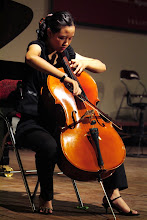There are variety genres in classical music, which is each of them playing the vital role in general music, especially in classical music. In this article, the most significant and considerable genre, the Symphony will be discussed. For a century, the invention and development of the Symphony by composers through different eras are always the most interesting and argumentative topic for music critics in the world. In every period of classical music, there is a composer who is the norm who created the great inspiration to other composers in not only their time but also hundreds of years after that. Beethoven in Classical era, Tchaikovsky in Romantic period and Debussy in 20th century music are the most important composers in their generation. Their symphonies are always the greatest classical works ever composed of all time.
In the classical period from 1750 to 1820, the Symphonies had three movements: a fast movement, a slow movement and later on another fast movement. Beethoven was the first composer dramatically expanded the symphony and put choir in to this genre. He expanded almost of his symphonies in four movements; especially his Symphony No.6 has five movements. His Symphony No.9 was written including vocal soloist part and choir in the last movement, turning it into a choral symphony. Later, Hector Berlioz, a French composer followed Beethoven and wrote Romeo and Juliette using soloist and choir in 1857. Beethoven is the composer who famous of his initialization of the leit motif in his Symphony No. 5. The short-short-short-long motif is very well-known, which called the Fate motif. This Symphony is one of the most popular and best-known compositions in all of classical music, which was described the symphony as “one the most important works of the time”.
With the rise of established professional orchestra, the symphony assumed more prominent place in concert from 1815 to 1910. The romantic music struggled to increase emotional expression and power to describe the truths, while extending the formal structure from the classical period. The new term Symphonic poem or Tone poem was used to describe a symphony which content of a poem, a story novel, a painting, and a landscape. Tchaikovsky was the only Russian Romantic composer who did not use oriental influences in his music. He preferred using folk tune melodies in his compositions. The melodies in his symphonies are always described the most beautiful, and most famous melodies in all music. They are notable for their immense elegance and gracefulness.
At the turn of the century, the classical music was divided into many different styles. There were variety trends such as: Modernism, atonality, neoclassicism and expressionism. The music in this period is shorter in form, highly colorful orchestration, and dissonant fragment melodies. Debussy emerged out to be a spearhead in France. His music is defined with a lot of different styles and influential from different composers. For instance: The “infinite arabesque” and complex counterpoint of Javanese gamelan, the stylization of nature in Japanese landscape prints, and the oriental influences of Russian composers.

No comments:
Post a Comment